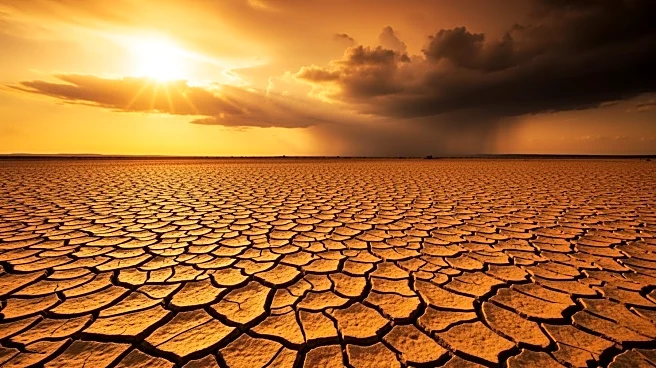What's Happening?
Israel is currently experiencing an unprecedented heatwave, with temperatures reaching historic highs for November. Eilat recorded a temperature of 37.3°C (99.1°F), surpassing previous records. Other areas,
including the Jordan Valley and coastal plains, also reported record-breaking temperatures. Despite the heat, meteorologists forecast brief but intense rainfall early next week, particularly in the northern Negev, lowlands, Samaria, and northern valleys. The rain raises concerns about potential flooding in lowland cities and parts of the southern coastal plain.
Why It's Important?
The extreme weather conditions in Israel highlight the growing impact of climate change on global weather patterns. Record temperatures can strain infrastructure, increase energy demand, and pose health risks to vulnerable populations. The forecasted rain, while providing temporary relief, may lead to flooding, affecting transportation and daily activities. These events underscore the need for adaptive strategies to manage climate-related challenges and protect communities from adverse weather impacts.
What's Next?
As the heatwave continues, authorities may need to implement measures to mitigate its effects, such as advising the public on heat safety and managing energy consumption. The anticipated rainfall could require emergency preparedness to address potential flooding, including deploying resources to affected areas and ensuring public safety. Long-term, Israel may need to invest in infrastructure and policies that enhance resilience to climate extremes.
Beyond the Headlines
The record heatwave in Israel serves as a reminder of the broader implications of climate change, including shifts in seasonal weather patterns and increased frequency of extreme events. These changes can affect agriculture, water resources, and public health, necessitating comprehensive climate adaptation strategies. The situation also highlights the importance of international cooperation in addressing climate challenges and sharing best practices for resilience.










